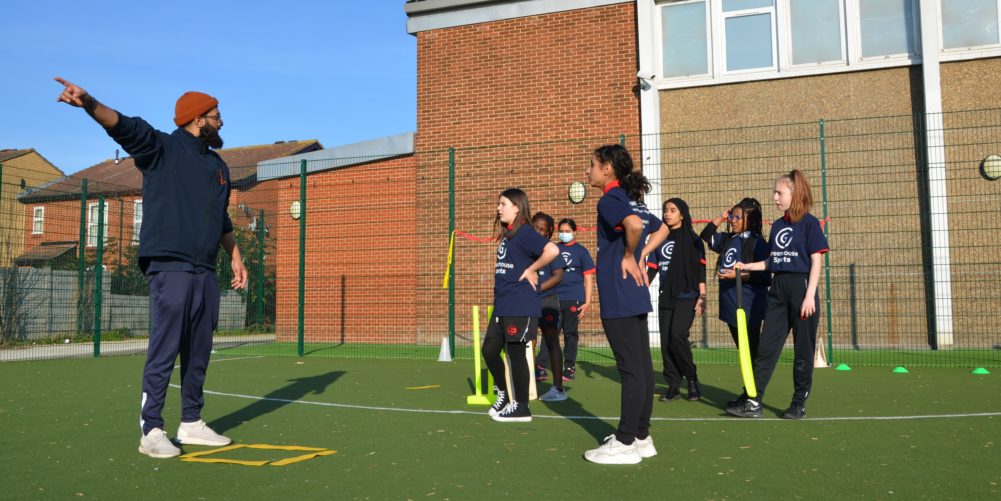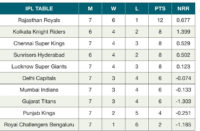Following yesterday’s piece about Greenhouse Sports’ new initiative to promote cricket in state schools, The Cricket Paper sat down with coach Masoor Khan and Greenhouse’s Director of Coaching and former England Table tennis international, Jason Sugrue.
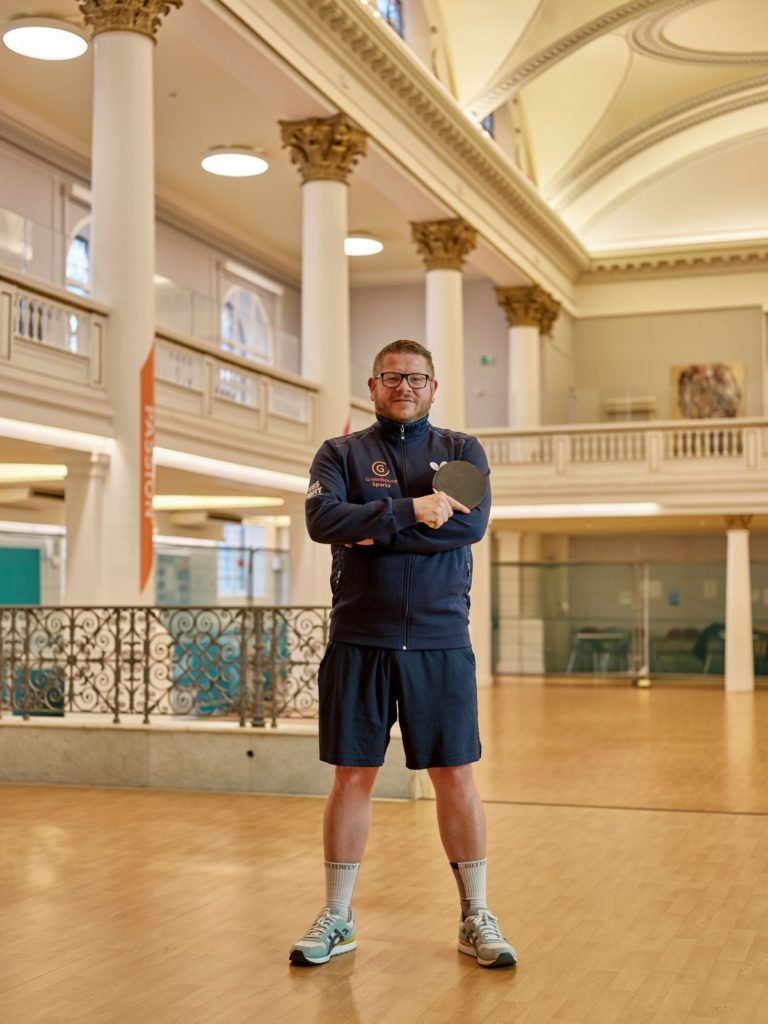
What is it about sport that has such an impact on the mental wellbeing of people?
Khan: Sport brings everyone to a level playing field, it doesn’t matter where you come from or what your background is. Whatever you’ve got going on at home, you can leave that all as soon as you step through the door, it all just goes to the back of the individual’s head and they’re there to play cricket and do what they do, which is love the game, and learn as much as they can.
Cricket’s got a funny way of doing that, it’s just one of those games where no matter how good or bad you are at other sports you can pick up cricket and thrive. The passion for learning cricket and the success that comes with it has been phenomenal to see.
Sugrue: Sport opens the doors to positive conversations. Cricket’s great for that because you have to communicate, sometimes you’re batting together, sometimes you’re miles apart in the field, but you have to build relationships and talking is very important for mental health.
We have three values as a charity: commitment, passion and teamwork, and those are to be expected from everyone who works for our charity. That really helps young people work together and communicate with each other which lightens the load a little bit.
What was the number one thing that attracted both of you to the project?
Khan: The fact I got to be embedded in a school and get to see these kids improve every day, not just with their cricket but the relationships and the rapport you build with the children, it makes you feel like you’re making a big impact and helping, and the studies that Greenhouse Sports have done show that.
You hear about some of the coaches within Greenhouse and the amazing stories they have, including Jason being a table tennis champion, and to see them put that experience and knowledge into the next generation is what I’ve found really exciting.
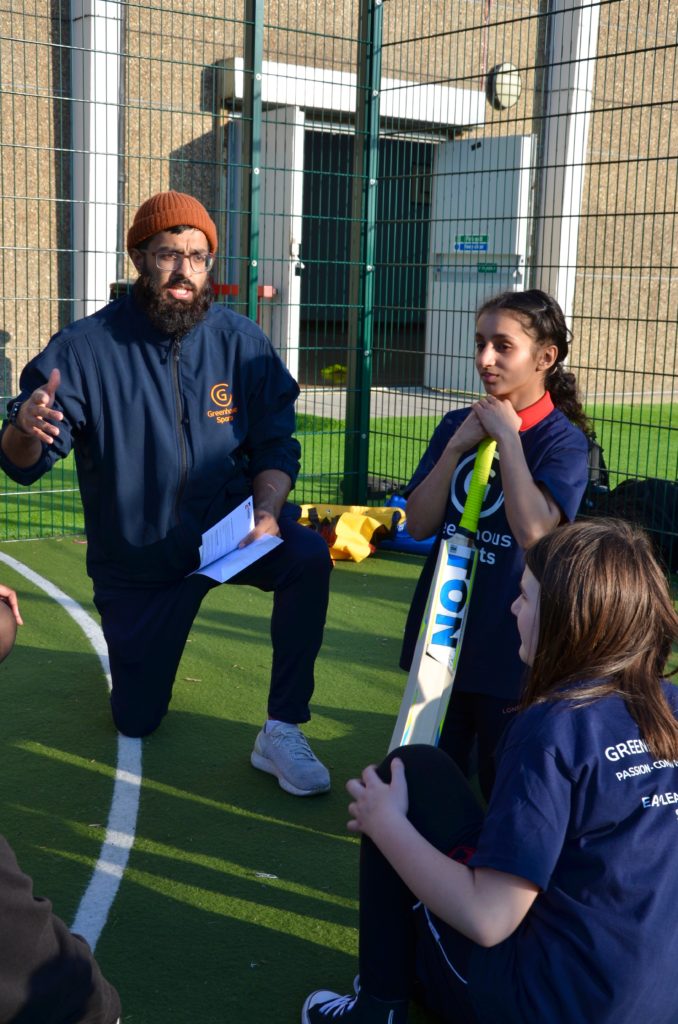
Sugrue: The power of sport, and what it does to the communities we work with, I can say with my hand on heart can be life changing for people.
I’ve been here for a long time, seen a lot of kids come and go and many go onto some fantastic things that they might not normally have done so. Kids going to university in all different parts of the world with their sport so there’s a lot of opportunities provided and that’s the thing that keeps me here.
We’re evolving and learning all the time as a charity, getting involved in new projects like with various legacy projects we’re doing in the Midlands after the Birmingham 2022 Commonwealth Games, so it’s exciting times.
What are some of the most memorable projects you’ve been involved in?
Sugrue: We purchased an old deconsecrated church right by Marylebone station not far from the Church Street ward near Westminster which is actually the second most deprived ward in the whole of the UK, we converted it into a community sports centre which has been brilliant because everyone within that community gets to use that facility for free.
There are so many great stories on top of that, we’re talking about kids who are close to being excluded from school, involved in county lines and even no longer on this planet for the decisions they make, and there are hundreds and hundreds of stories of us turning those kids around, not only staying at school and doing well, but going onto university and beyond.
One of my favourite expressions is ‘to jump high, you’ve got to bend low’, and learning that as a young person is incredibly important, and teaching them the resilience they need in order for them to get to where they want to get. Sometimes, we’ll all have bad days, and it’s about being able to learn from those bad days, not holding them too much as an emotion, and being able to bounce back, jump high from that low pit. That’s what we’re all about.
Khan: Every day is a little win, from having breakfast clubs where no-one attended at the start of the year, to now having seven or eight kids there before the gates even open at 7:30am for an 8:30 start, I’m fist pumping every day when I see that.
To have kids that have never played to turn around and say ‘Sir, I really love cricket’, and are falling in love with the sport, going home and watching videos and asking me about wicketkeeping when we’ve not yet covered that in sessions, it shows you they have such a passion for it and that’s been brilliant.
We’re actually taking a group to Arundel Castle, working with the cricket foundation there to take 20 kids and do a three day residential with them, we’re working with the Oval Invincibles to take 10 or 15 kids to watch the Hundred at the Oval, and these opportunities wouldn’t have been an option if Greenhouse wasn’t at Eastlea Community School.
How can governing bodies do more to address the issue of disadvantaged kids?
Sugrue: Expense is a real barrier. You go to join your local sports club and for some families paying membership fees is very difficult. It’s hard enough for people to make ends meet, especially in the times we’re in now. There’s also a lack of knowledge and opportunity, parents who have never played cricket are unlikely to get their kids into the sport.
I don’t want to have a go at governing bodies, they put in place initiatives which are great, but what you need is feet on the ground, coaches going out in the community, working in schools consistently and doing it full-time.
The kids come initially for the character of the coach, yes they might like playing cricket, but the coach and their permanence is the most important ingredient in the recipe. Governing bodies could really look at our model a little bit more and work in partnership with us. We’re experts in the field, our training is exceptional, equipping coaches with all the skills they need on and off the field, including mentoring and mental health first aid training.
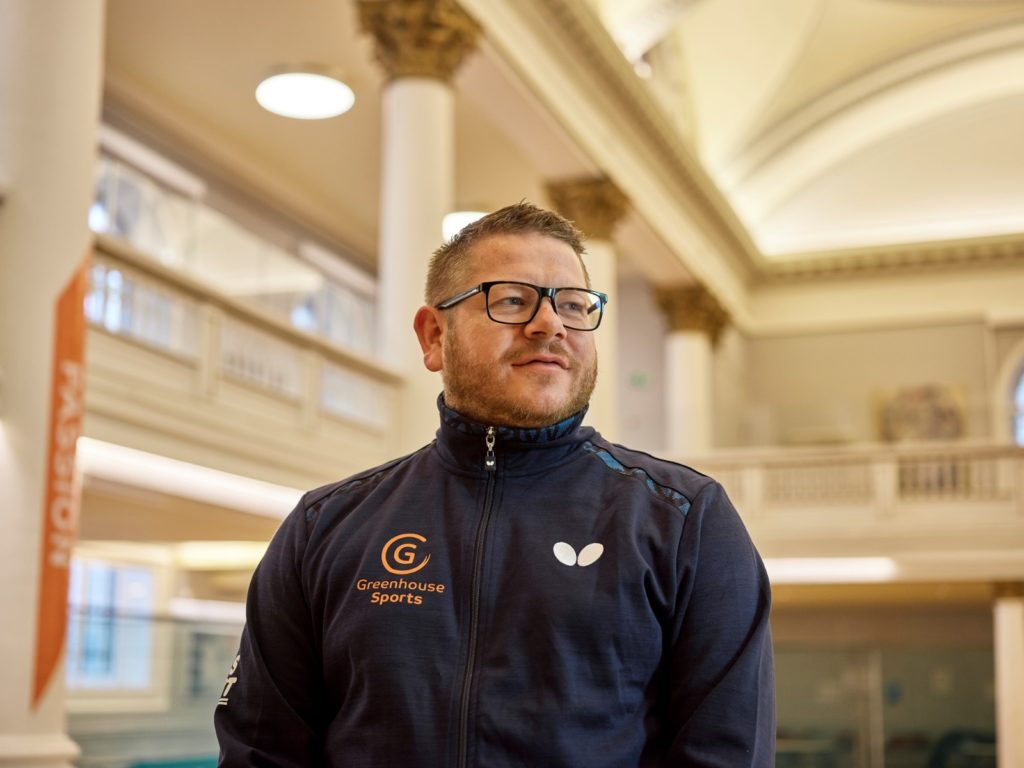
Mas: The ECB are definitely waking up to the lack of knowledge and understanding that they previously had in engaging with those certain demographics through things like the ACE programme. This just adds to it though, and it’s another opportunity for governing bodies to partner with us and work out how we can best work together.
Credit to the ECB, they are creating some successful introductions to cricket programmes, but I think state secondary schools are where cricket is really missing out for sure. The model with Greenhouse having a full-time member of staff is fantastic, it’s a unique selling point for us and the impact that has is worth looking into for them.
What are your ambitions in the next couple of years, both for the charity and individually?
Khan: I think it’s an exciting time for Greenhouse and cricket, the fact that we’ve been piloting for only four to five months and I have 86 fully registered participants, the most of which do two to three hours of cricket which shows they’re really passionate about cricket.
From a personal point of view I hope I can help shape that, being able to help drive cricket for Greenhouse is something that I feel super inspired to do, helping the next generation of coaches to be the best coaches they can be, and giving kids the chance to be the best people they can be is something that will help me go to bed with a big smile on my face.
Sugrue: There are currently 800,000 young people living in deprivation within London, 4,000,000 nationally. I’d love every single one of them to have an opportunity to have a Greenhouse Sports programme in their school. It sounds like a bit of a pipe dream but as Nelson Mandela said sport has the power to change people’s lives, and I see having it in people’s lives as super important.
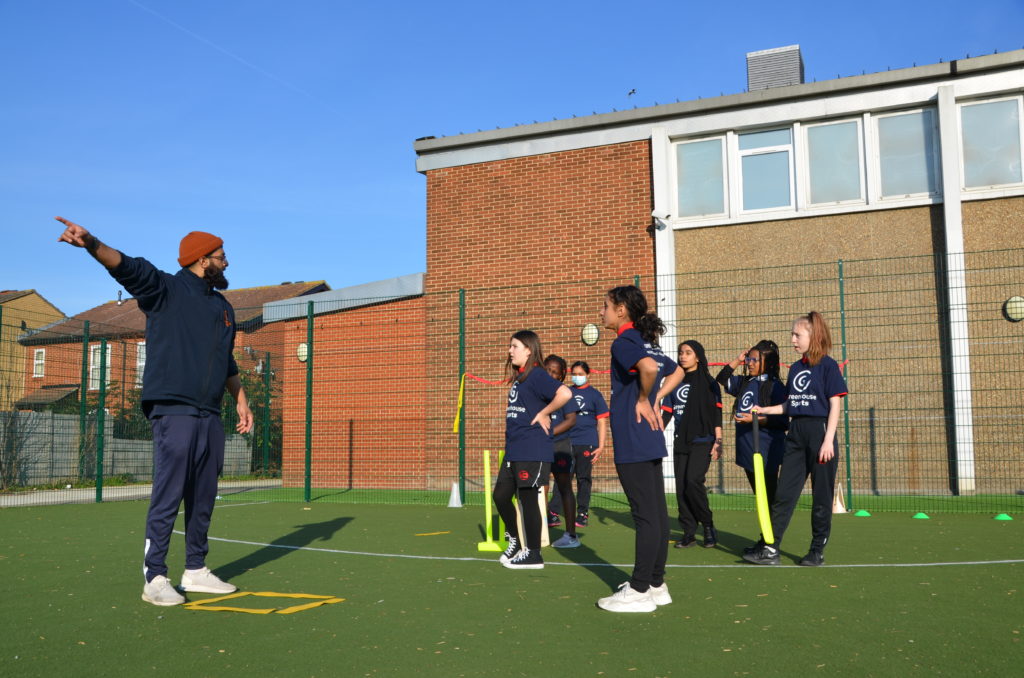
We also need to look at providing the kids with a pathway out of our school programmes. Connecting well with further education, such as universities and partnering with local clubs to remove some of the barriers so they can make a lifelong choice to play some of these sports.
Let’s call it what it is, there’s still an issue with kids being too poor to win. Getting people to play is good, but people don’t just want to play, they want to win, and to win requires a hell of a lot of investment. There’s a good expression ‘it takes a village to raise a child’, it definitely takes that and more to raise a sportsperson.
On a personal level I’d love to do more to get all those kids that are now playing sport to go further, because there’s not enough backing when the kids have to pay their way to reach a high level. The kids who put in the effort deserve to have the opportunity to be in the top five per cent of people playing their sport and follow their dreams, regardless of what that sport is.

